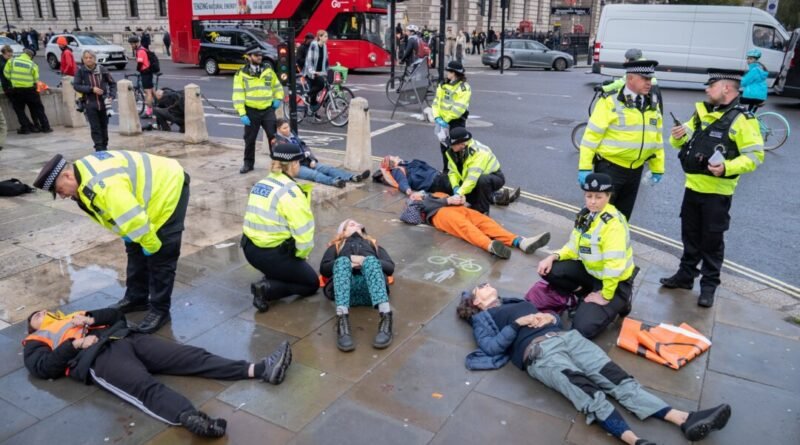High Court Rules New Anti-Protest Laws Unlawful
The High Court has deemed laws that reduced the threshold for police intervention in protests to be unlawful.
The High Court in London ruled on Tuesday that recent anti-protest legislation aimed at expanding police powers is unlawful.
The Liberty human rights NGO took legal action against the Home Office regarding protest regulations passed through statutory instrument last year.
On Tuesday, Lord Justice Green and Mr. Justice Kerr concluded that the Home Office exceeded its authority by lowering the threshold and failed to consult affected groups properly.
A Home Office spokesperson expressed disappointment in the ruling but mentioned that they have been granted permission to appeal and will explore other options to maintain this crucial police power.
They highlighted the importance of the right to protest in a democracy while also emphasizing the need to protect the majority’s right to normal daily activities.
Related Stories
The ruling to annul the legislation has been temporarily suspended pending the Home Office’s appeal.
Liberty hailed the ruling as a significant victory for democracy, asserting that it establishes boundaries against government overreach.
Through the human rights organization, it was revealed that numerous protesters, including climate activist Greta Thunberg, have been arrested under the new laws, with Thunberg being acquitted in February.
Liberty’s director, Akiko Hart, stated the importance of the government respecting citizens’ rights to voice their opinions.
Liberty urged immediate cessation of the powers by law enforcement and emphasized the need for power accountability.
The judges pointed out that the government ignored Parliament’s intent by broadening what constitutes “serious disruption” in protests.
In June 2023, then-Home Secretary Suella Braverman pushed through the new measures, lowering the threshold for police intervention.
Concerns were raised about the government’s persistence in passing the law after its rejection in primary legislation.
Lawyer Katy Watts criticized Braverman for circumventing the parliamentary process and breaching the constitutional separation of powers.
Lord Thomas of Cwmgiedd noted that this was the first instance of changes being made through secondary legislation after being rejected in primary legislation.



